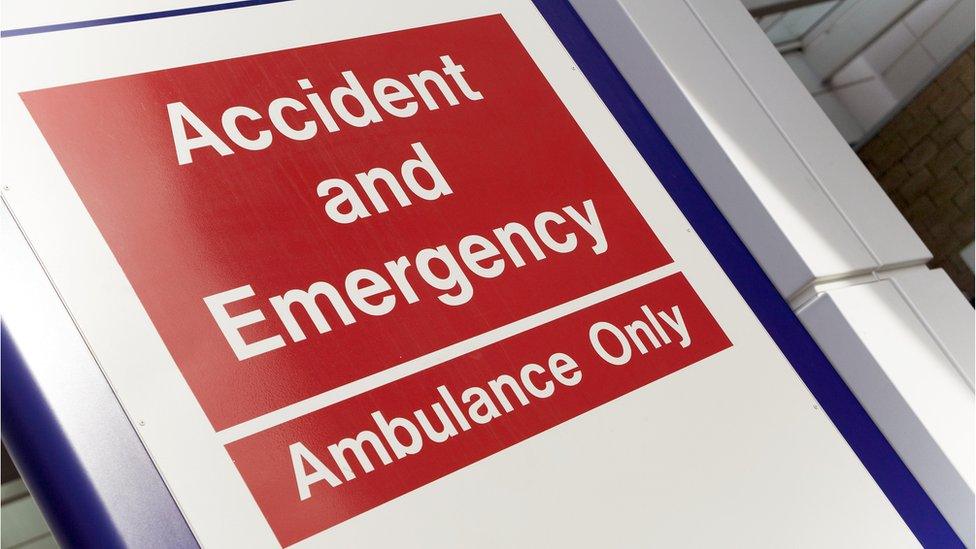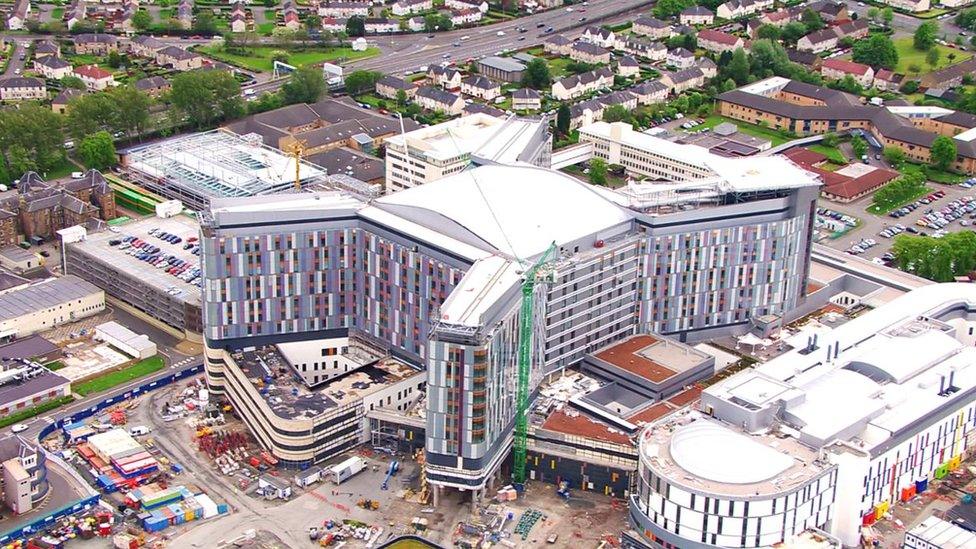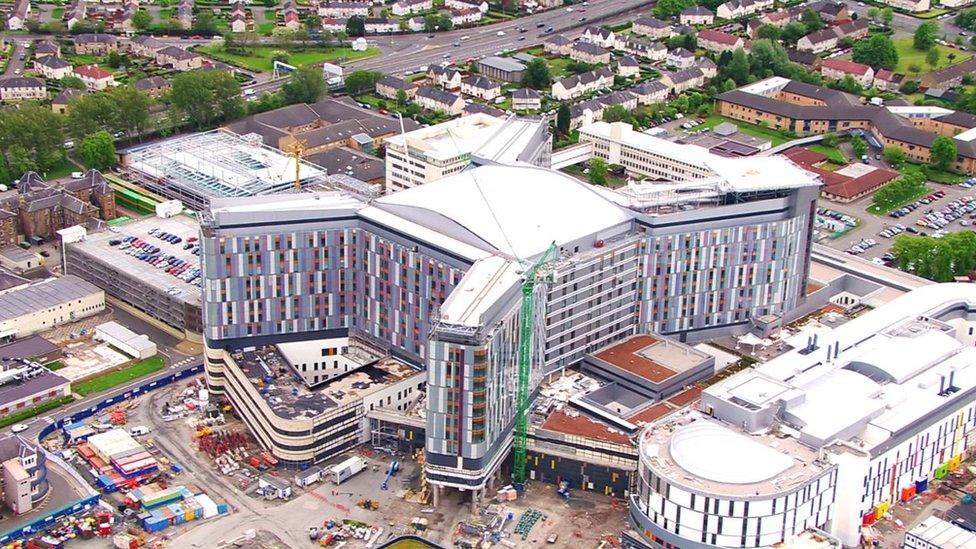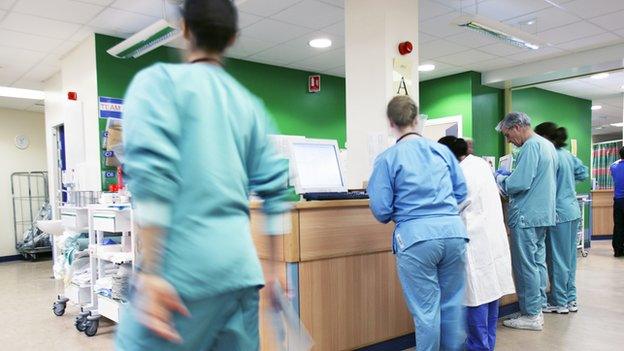Scotland sees A&E target miss in first week of 2017
- Published

Just under 88% of patients attending accident and emergency departments in Scotland in the first week of 2017 were seen within four hours.
The Scottish government wants at least 95% of patients seen within that time.
A total of 25,066 people presented at A&E, with 454 spending more than eight hours to be seen, admitted then transferred or discharged.
Separate statistics showed a slight drop in the number of people delayed in hospital longer than necessary.
Delayed discharge, or so-called bed blocking, occurs when care packages are not ready or available within the community.
In November 2016, a total of 1,509 people were patients clinically ready to leave hospital but could not. That figure was down from 1,576 the previous month.
The A&E performance statistics for the first week of January showed 87.9% of patients were seen and subsequently admitted, transferred or discharged within four hours.
The figure for the same week last year was 88%.

The figures for the Queen Elizabeth University Hospital in Glasgow, for the first week of 2017, were its worst since opening
The worst performing hospital was Hairmyres in Lanarkshire where 74.6% of patients were seen within the target.
At Scotland's largest hospital , the Queen Elizabeth University Hospital in Glasgow, the figure was 74.8% - its worst since the hospital opened in April 2015.
Responding to the latest figures, Health Secretary Shona Robison said: "The figures published today show in the first week of January, our A&E departments performed at the same level as last year - despite seeing an increase in demand.
"While there are undoubtedly seasonal pressures on our frontline healthcare services at the moment, the latest available data shows Scotland's hospitals are performing 10 percentage points better than England's and 15 percentage points better than Wales."
She added: "It is also encouraging to see a reduction in the number of bed days lost to delayed discharge in November.
"What these figures show is a 5.1% reduction in bed days associated with delayed discharge in 2016 compared with 2015, while the same period in England experienced a 23% increase."
What are opposition parties saying?
The Scottish Conservatives said the A&E statistics showed hospitals across the country were "struggling to cope with current demand".
The party's health spokesman Donald Cameron said: "The SNP has been in sole charge for almost a decade, and has no-one else to blame for the state of the NHS in Scotland.
"Simply pointing fingers at health systems elsewhere will not cut it.
"Ministers have to explain why there's no improvement in this performance, and what they intend to do about it."
Scottish Labour's health spokesman, Anas Sarwar, said the 434 patients a day who "waited longer than the SNP promised won't be satisfied by the SNP pointing to England".
He added: "It is painfully clear our NHS staff are struggling to cope with demand, but the SNP slashing budgets will just pile on the pressure.
"Shona Robison admits delayed discharge is the biggest issue facing our health service, and the major reason pressure is piled on A&E departments.
"Yet two years on from promising to abolish it, we still see 1,500 delayed patients in a month and as a result A&E patients waiting too long for treatment."
Alison Johnstone, health spokeswoman for the Scottish Greens, said it was "a worry" that NHS management and government ministers did not appear to be better prepared.
She added: "The health secretary's review of NHS staffing levels, including GPs and social care, is welcome but will be of little comfort to those affected in recent weeks.
"The findings must be acted upon so we don't have a repeat of such confusion in our hospitals."
The Scottish Liberal Democrats described the figures as "horrendous".
Health spokesman, Alex Cole-Hamilton, said: "Performance is plummeting. The BMA warned at the weekend that there is a risk of 'system breakdown' as parts of the NHS are stretched to 'breaking point'.
"Staff and those in need of urgent care are being let down by the SNP's inability to get to grips with this crisis."
- Published20 December 2016

- Published2 August 2016

- Published19 January 2016
